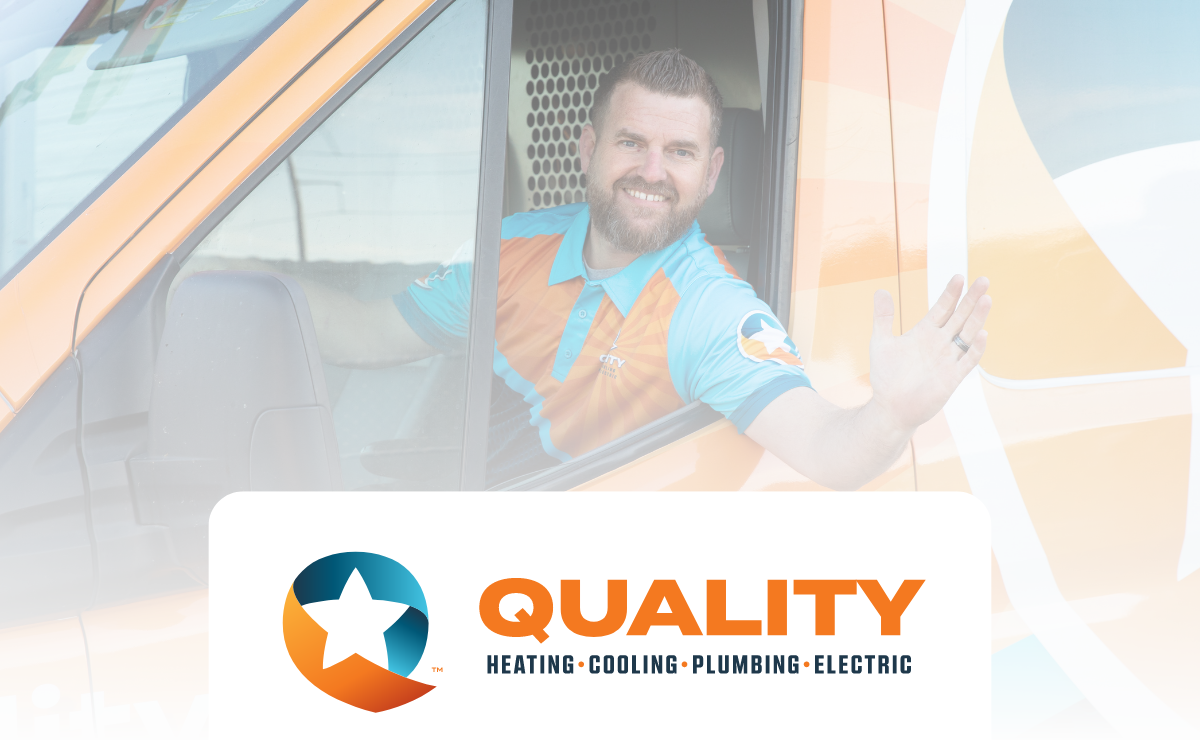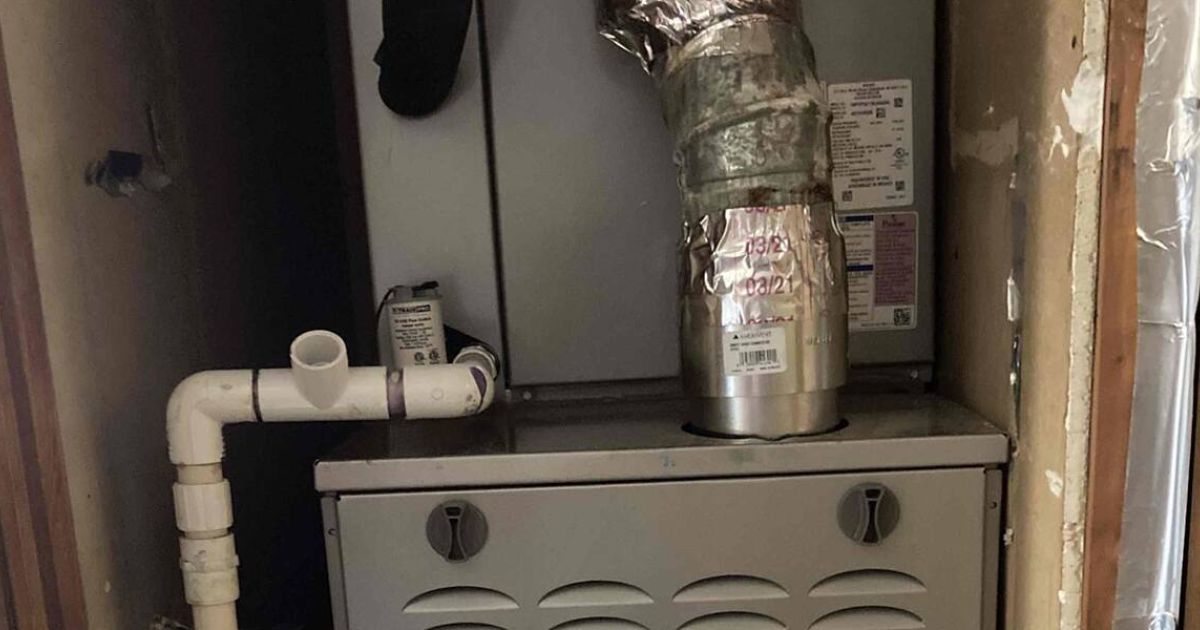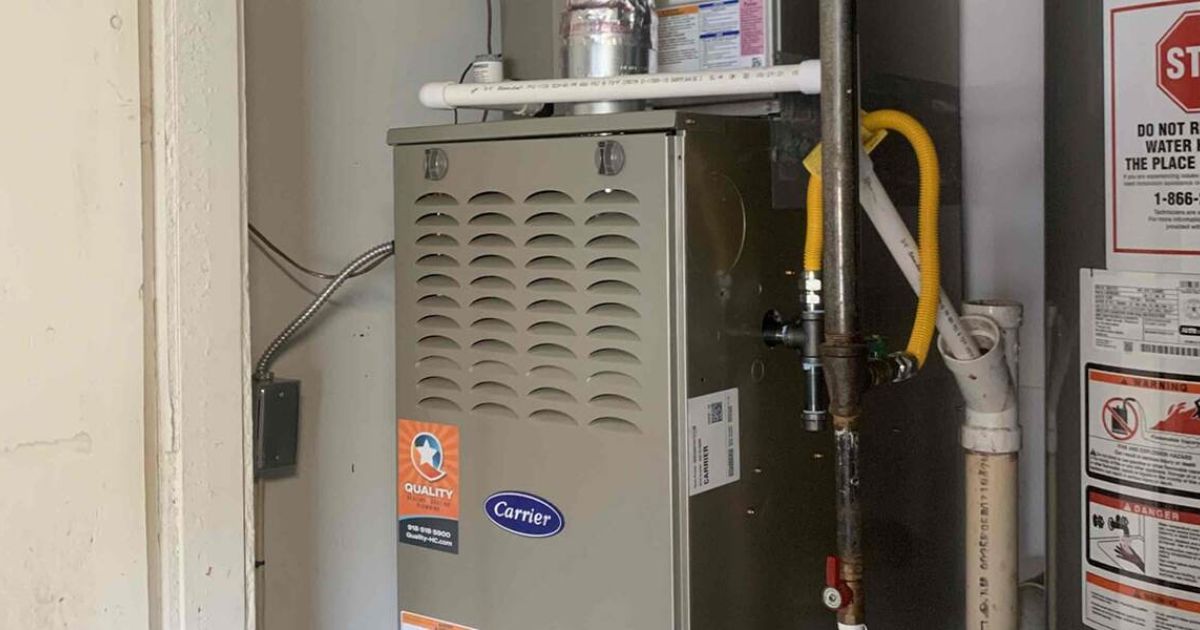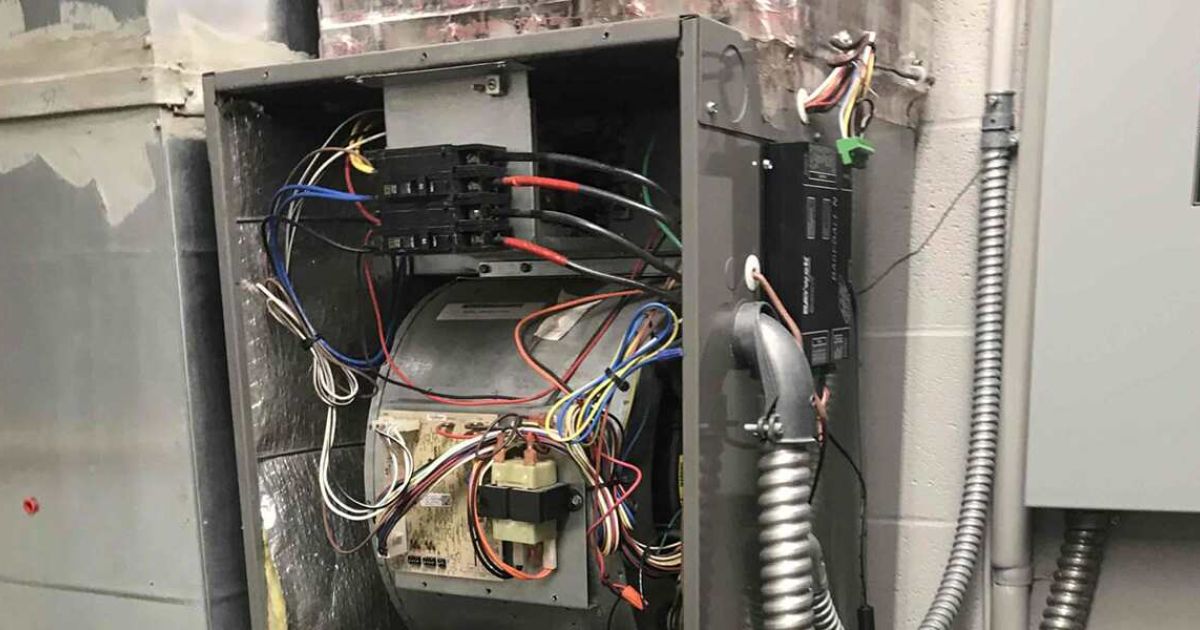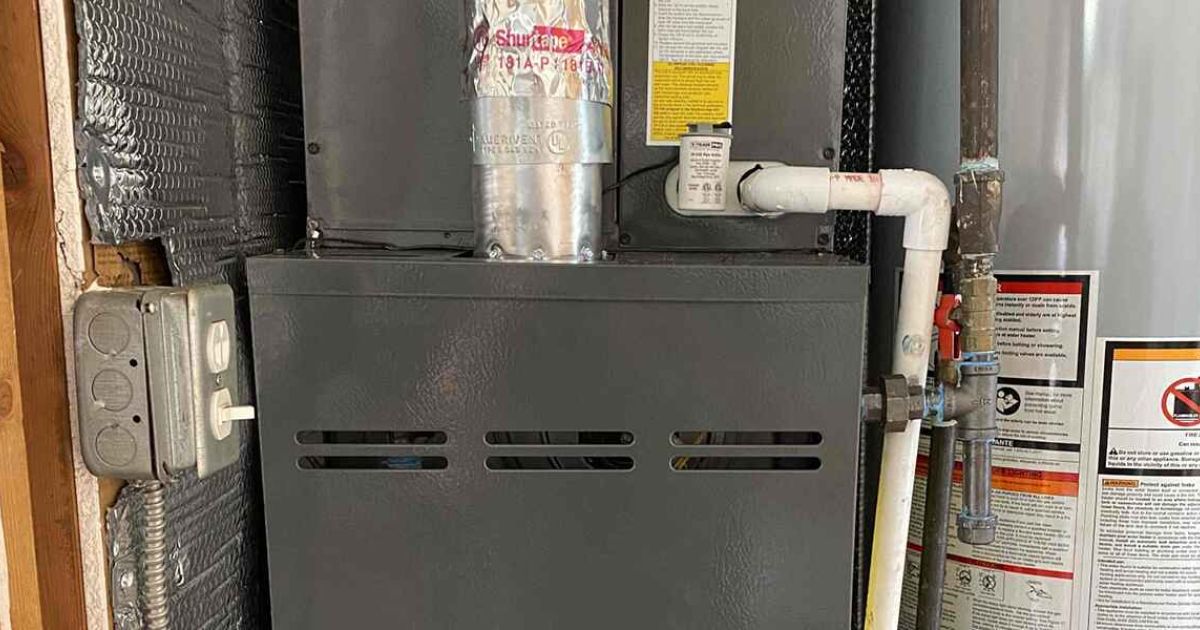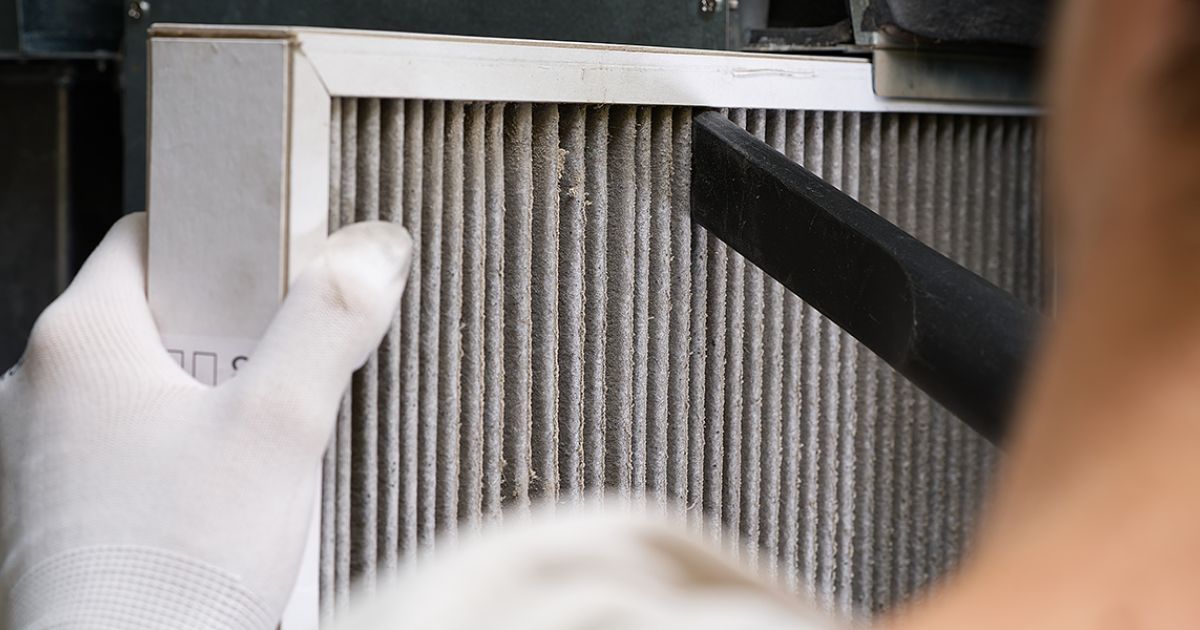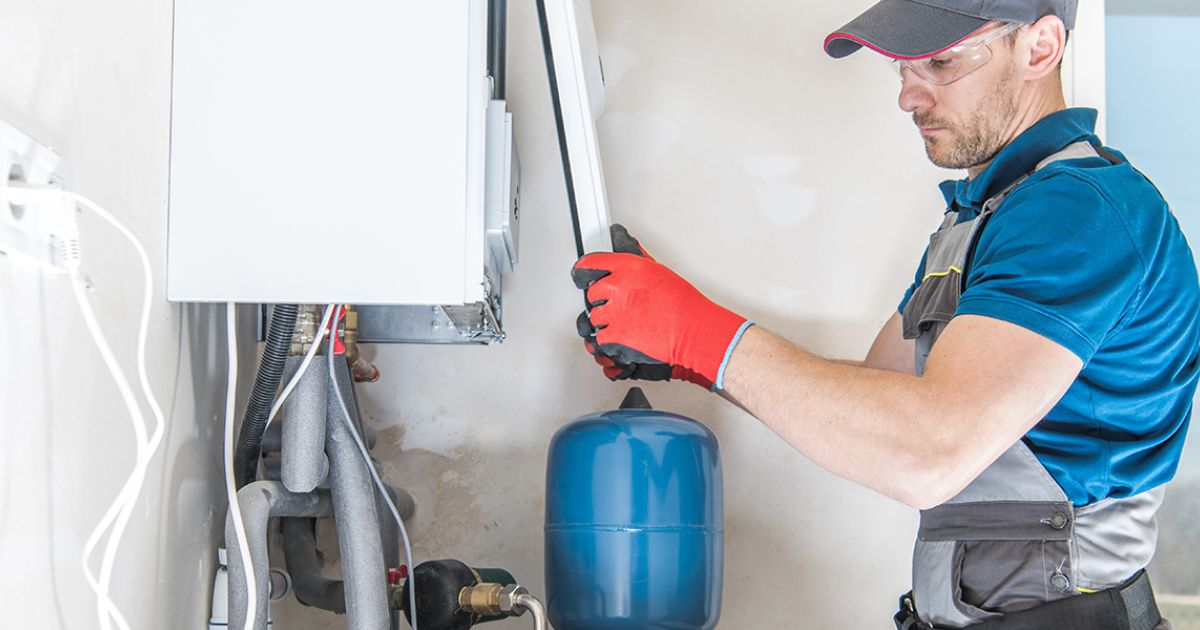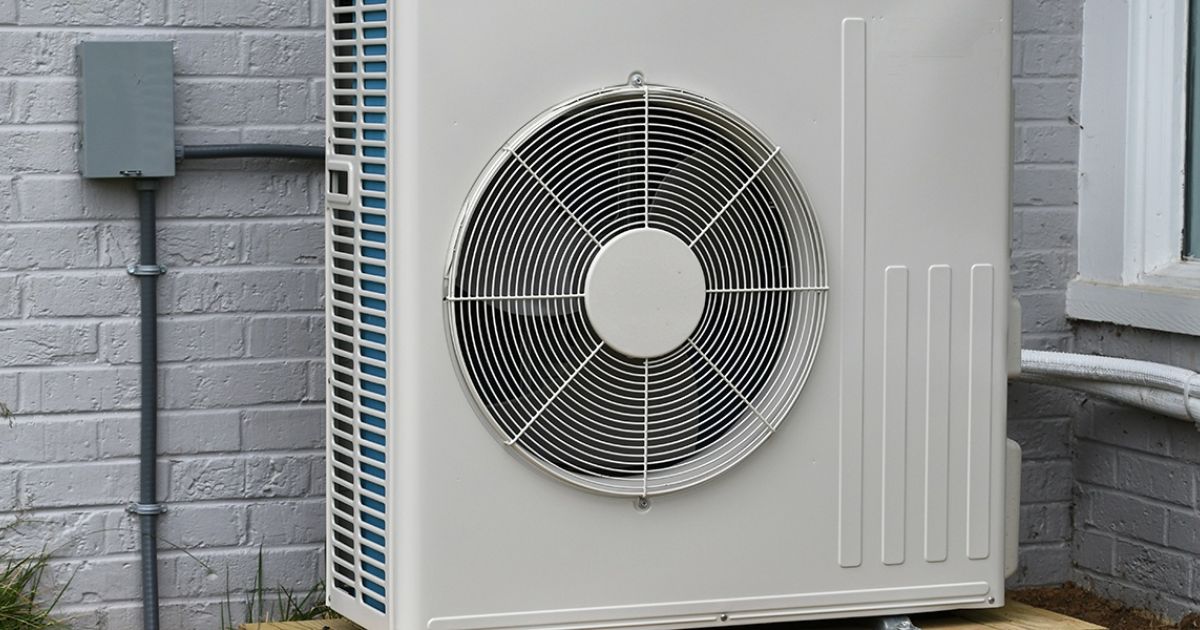
Are you having issues with your HVAC cooling system? Let Quality Heating, Cooling & Plumbing diagnose and fix them when you call 918.212.0122!
Your HVAC cooling system is instrumental in keeping you nice and cool year-round. In addition to keeping the heat away, a highly efficient heating and cooling system can also prevent pests and reduce the chances of mold growth.
Split system air conditioning units can also last a long time, with the average lifespan being 10 to 15 years. However, problems can still arise.
While numerous issues can reduce or stop the performance of your HVAC cooling system, we’ll break down 10 of the most common problems. Luckily, all these problems are easy fixes when using Tulsa’s trustworthy heating repair services.
1. Poor Airflow
Poor airflow from your vents whenever your HVAC cooling system is operating can indicate several problems. Some of these issues potentially include:
- Dirt, buildup, or debris blocking your outside unit’s fans.
- Filthy air filters prevent proper airflow.
- Your blower fan is cloaked in dirt, reducing performance capabilities.
2. Having Warm Air in Your Vents
A few issues can cause you to have warm air in your vents. First, eliminate minor problems like your heating unit accidentally being on or your fan being on the AUTO setting, and ensure your thermostat is functioning correctly.
In older homes, it’s not uncommon for a faulty thermostat to be the source of the problem, as it can force your unit to blow warm air due to improper settings. Investing in a smart thermostat can quickly fix this problem and reduce your bills.
However, if you’ve checked and everything seems to be correct, then you might have problems like:
- Dirty coils
- Leaking refrigerant
- Debris, dirt, and pollutants blocking your heating and cooling system
3. Clogged Drain Lines
Condensation is a natural and healthy side-effect of your indoor air cooling. This condensation indicates your home is becoming dehumidified. During this process, your drip pan below your evaporator coils collects moisture. However, clogs or blockages can form, obstructing your drain lines.
When clogged, water will build up in your drain pan and drip around your indoor HVAC cooling system. This clog can lead to indoor water damage and algae growth in your drip pan.
4. Having Low Refrigerant Levels or Refrigerant Leaks
Refrigerant is crucial for a split system air conditioning unit. Refrigerant will travel between your indoor and outdoor unit lines to transfer heat from inside to outside your property. Naturally, having low refrigerant levels or leaks can severely hamper even a highly efficient AC unit or heat pump.
A refrigerant leak is often caused by:
- Corrosion
- Installation or repair errors
- Malfunctioning equipment
- Regular wear and tear
5. Dirty Condenser Coils
Your condenser coils are integral to any heat pump or air conditioning unit. They release collected heat outside, leading to cool air inside. However, your condenser coils can quickly gather dirt, debris, and other pollutants.
Over time all this buildup of excess filth can cause your system not to operate correctly. Besides causing skyrocketing energy bills, dirty condenser coils can also allow harmful pollutants to enter your home and cause breathing issues or even attract unwanted pests.
6. Frozen Evaporator Coils
While condenser coils are for your outdoor AC unit, evaporator coils are for your inside unit. These coils collect heat from inside your home, and they can freeze over if they become too cold. Frozen evaporator coils mean your unit will either have to work harder or won’t be able to work at all.
Although cold weather can sometimes trigger evaporator coils, they’re often a result of inadequate airflow or leaking refrigerant.
7. A Faulty Air Handler
An air handler or “blower” has a motor that works by transferring air inside your home and duct network. Unfortunately, blower motors can still malfunction because homeowners often overlook them despite their durability.
Signs that you need to repair or replace your blower motor might include smelling or spotting electrical burning inside your ductwork or hearing a loud banging or grinding sound. Unfortunately, fixing an air handler’s motor yourself is nearly impossible and will need a professional’s skills and tools.
8. Your Air Conditioner Is Short Cycling
Your average cooling cycle takes about 15 minutes to complete. However, if your AC unit shuts off after a few minutes, it might be short cycling. This short cycling is typically due to airflow problems that force your components to overheat or because a building achieves its temperature setting quickly.
9. Your Unit Doesn’t Turn On
When your air conditioning unit or heat pump doesn’t turn on, it’s best to start by ruling out a power issue. Standard power issues might include:
- Blown fuses
- Tripped breaker
- Dead or malfunctioning batteries
- Wiring problems
- Malfunctioning motors
If your unit not turning on can’t be linked to any power issues, it’s best to have a professional diagnose it. It might be as simple as a clogged drain line or require an extensive repair or even a unit replacement.
10. High Energy Bills
During summer, you probably anticipate that your energy bills will be higher than usual. After all, your HVAC cooling system will be pulling more shifts to keep your home or commercial property nice and cool. However, high energy bills are often a surefire way to tell that your HVAC system has issues.
First, rule out any additional reasons why your energy bills might be higher than last summer. For example, if the temperature outside is considerably higher this year or if you have more people in your home consuming energy.
If you can safely rule out these possibilities, your high energy bills might be because of your HVAC cooling system. Something as minor as dirty filters can force your system to work harder, increasing your energy bills. For best results, schedule regular maintenance sessions with a professional HVAC team.
Give Quality Heating, Cooling & Plumbing a Call Today
While we’ve broken down ten common problems that your HVAC heating and cooling system might be facing, many other issues can arise. The best strategy is to eliminate these risks with the proper maintenance from our professional HVAC team.
To discover our HVAC for basement services and how to increase your HVAC cooling system’s longevity, call Quality Heating, Cooling & Plumbing today at 918.212.0122!

Cassie Pound is the Vice President of Quality Heating, Cooling, Plumbing & Electric with locations in Tulsa, Glenpool, and Bartlesville, Oklahoma.

